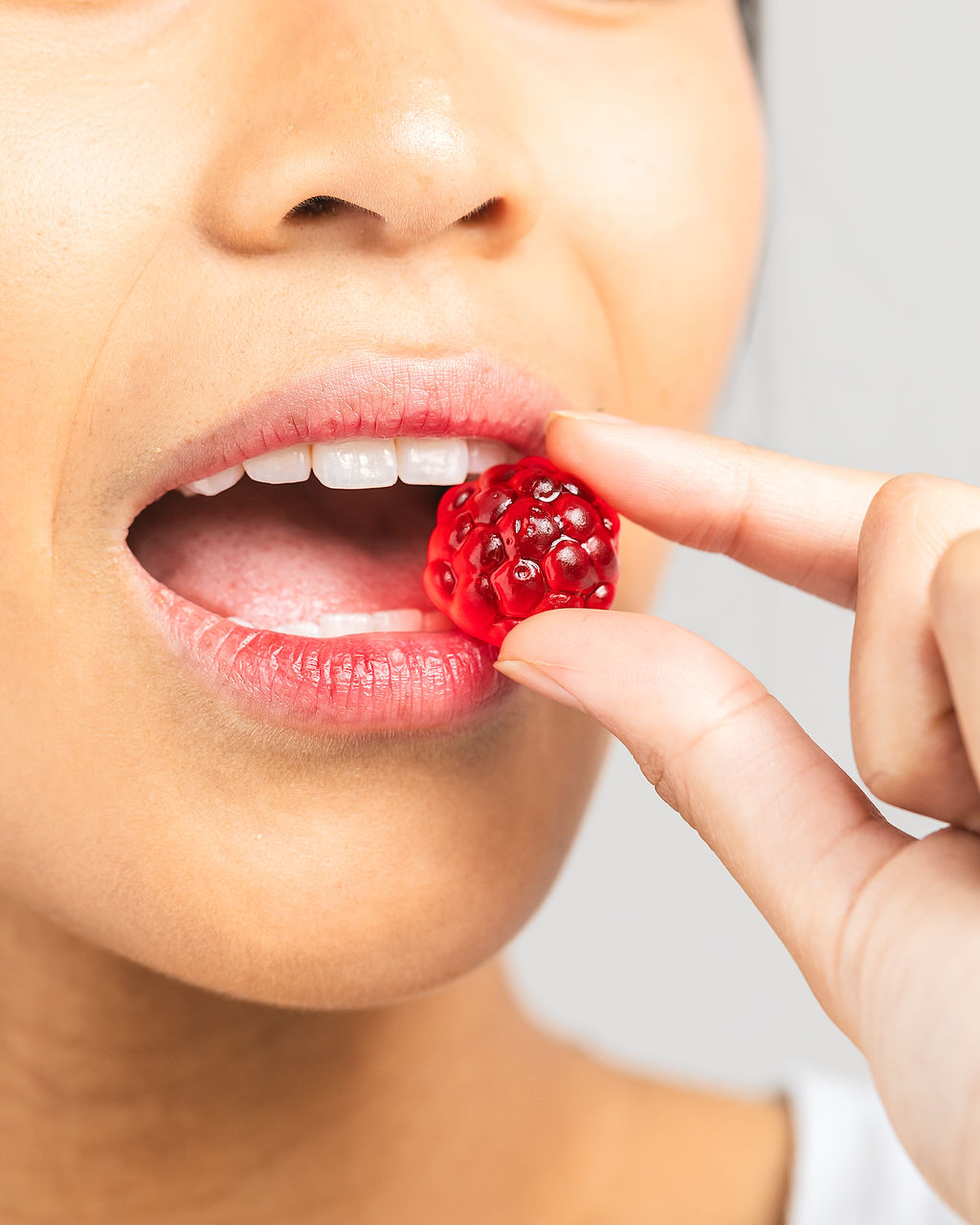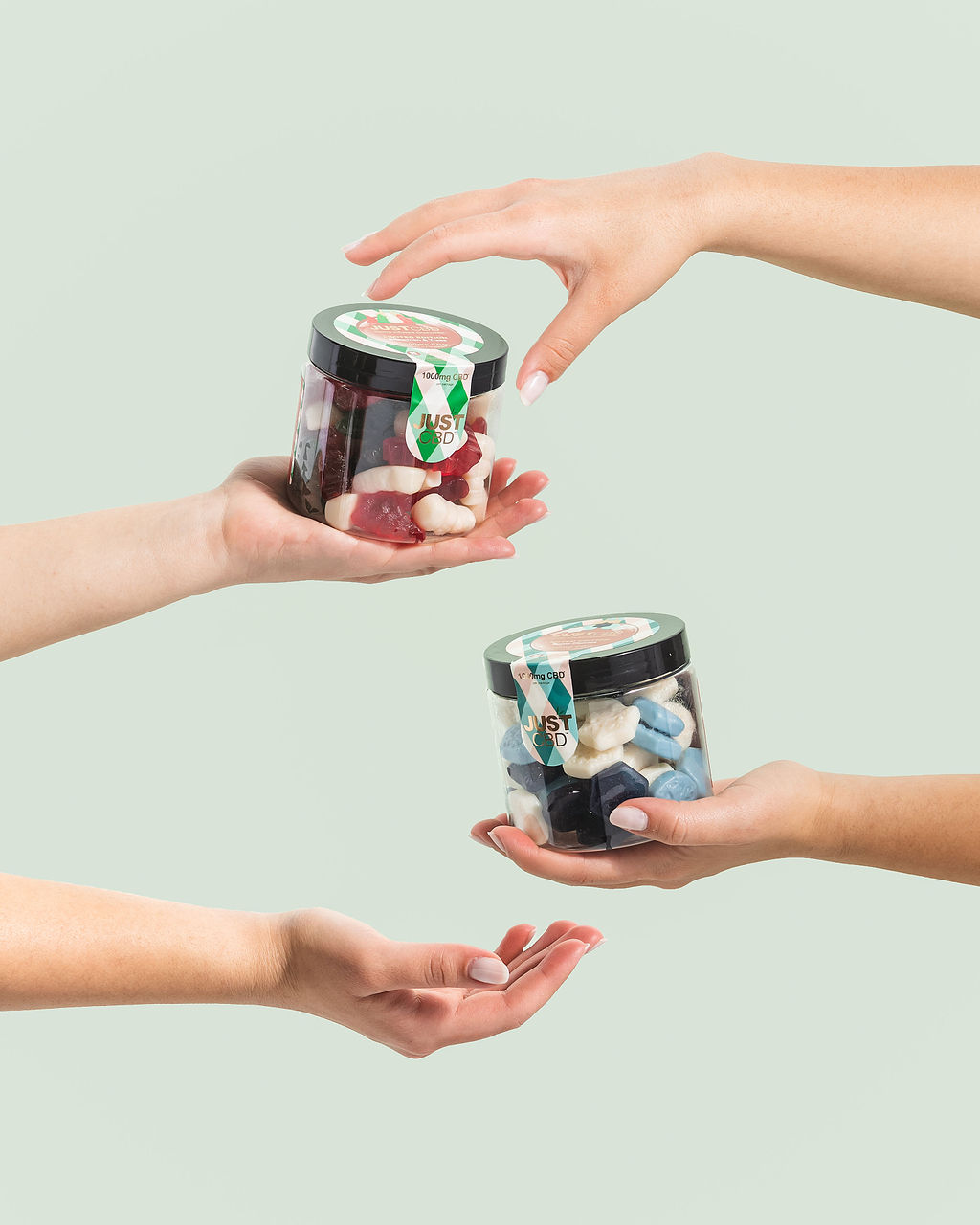Are CBD Infused Gummy Edibles Safe For Children
itzadmin
- 0
Ingredients and Potential Risks
What’s in CBD-Infused Gummies?
CBD-infused gummy edibles are a type of food product that combines cannabidiol, a non-psychoactive compound found in cannabis plants, with edible materials such as sugar, corn syrup, and fruit juice to create a chewable candy. These products are often marketed as a way to ingest CBD without the need for smoking or vaping.
The ingredients used in CBD-infused gummy edibles can vary depending on the manufacturer and the specific product. However, common ingredients may include:
- Cannabidiol (CBD) oil or extract
- Sugar or other sweeteners
- Corn syrup or other food-grade binders
- Fruit juice or other flavorings
- Food coloring
- Preservatives
- Purified water

Some CBD-infused gummy edibles may also contain additional ingredients, such as vitamins, minerals, and herbs. However, it’s essential to note that some of these products may not be regulated by the FDA or other government agencies, which means their quality and safety are not guaranteed.
The potential risks associated with consuming CBD-infused gummy edibles for children include:
- Contamination: As with any food product, there is a risk of contamination during the manufacturing process. This can occur through cross-contamination with other substances or the presence of allergens.
- Mislabeling: CBD-infused gummy edibles may be mislabeled or contain incorrect information about their CBD content, which can lead to unintentional overexposure to this compound.
- Interactions with medications: CBD has the potential to interact with certain medications, including prescription and over-the-counter products. This can lead to adverse effects or alter the effectiveness of other treatments.
- Pregnancy and breastfeeding concerns: There is limited research on the safety of CBD use during pregnancy and breastfeeding. However, as a precautionary measure, women should consult their healthcare providers before consuming CBD-infused gummy edibles.
Children are particularly vulnerable to adverse effects from consuming CBD products due to differences in metabolism and sensitivity. As a result, it’s crucial for parents to exercise caution when considering the use of CBD-infused gummy edibles for children.
Buy JustCBD Cannabidiol Chewables
CBDinfused gummy edibles contain cannabidiol, a compound found in cannabis plants. However, some products may also include other ingredients like THC, the psychoactive component of marijuana. The FDA has warned that consuming highTHC gummies can lead to adverse effects in children and adults.
The safety of **CBD-infused** gummy edibles, especially for children, has been a topic of concern due to the presence of potential allergens and other ingredients that may pose risks to health.
One key ingredient in these products is cannabidiol (**CBD**), a non-psychoactive compound found in cannabis plants. However, some gummies may also contain **THC** (tetrahydrocannabinol), the psychoactive component of marijuana.
The FDA has issued warnings about consuming high-**THC** products, as they can lead to adverse effects in both children and adults. This is particularly concerning for parents who may inadvertently give their children **CBD-infused** gummies that contain **THC** without realizing it.
Other potential risks associated with **CBD-infused** gummy edibles include:
- Allergies: Some products may be contaminated with common allergens like soy, dairy, or gluten, which can cause severe reactions in individuals with sensitivities.
- Overdose: Consuming high doses of **CBD** or **THC** can lead to adverse effects, such as dizziness, nausea, and anxiety. In rare cases, it may even result in life-threatening complications.
- Pregnancy and breastfeeding: While **CBD** is generally considered safe for pregnant women and those breastfeeding, there is limited research on its effects during these periods. As a precaution, it’s recommended to consult with a healthcare professional before using **CBD-infused** products.
- Mislabeling and adulteration: Unfortunately, some manufacturers may mislabel or adulterate their products, which can lead to accidental exposure to **THC** or other substances that may cause harm.
To ensure the safety of children when using **CBD-infused** gummy edibles, parents should:
- Choose reputable manufacturers that adhere to Good Manufacturing Practices (GMPs) and have transparent labeling.
- Select products that are specifically labeled as **THC-free** or contain less than 0.3% **THC** by dry weight.
- Consult with a healthcare professional before giving their children **CBD-infused** gummies, especially if they have pre-existing medical conditions or take other medications.
By being aware of the potential risks and taking necessary precautions, parents can minimize the dangers associated with **CBD-infused** gummy edibles for their children and ensure a safer experience.
Regulations and Guidelines
What Do Government Agencies Say?
The safety of CBD-infused gummy edibles for children is a topic of ongoing debate and regulatory scrutiny. Government agencies around the world have issued guidelines and regulations regarding the use of CBD products, particularly in relation to their potential impact on children.
Regulations in the United States
The U.S. Food and Drug Administration (FDA) has not approved any CBD-infused gummy edibles for use in children, and the agency has expressed concerns about the safety of these products due to the lack of research on their effects.
FDA Guidelines
- The FDA advises parents to consult with a pediatrician before giving their child any CBD product, including gummy edibles.
- The agency notes that CBD products can interact with other medications and may cause side effects such as drowsiness or stomach upset in children.
- Parents are also advised to check the ingredient list for added sugars, artificial flavors, and colors, which may be particularly problematic for young children.
Regulations in Canada
In Canada, the regulatory landscape is similar. Health Canada has not approved any CBD-infused gummy edibles for use in children, and the agency recommends that parents consult with a healthcare professional before giving their child a CBD product.
Health Canada Guidelines
- The Canadian government advises parents to carefully read the labels of CBD products, including information about ingredients, recommended dosage, and potential interactions with other medications.
- Parents are also warned that CBD products can cause side effects such as fatigue, dizziness, or changes in appetite, which may be particularly concerning for young children.
Regulations in the European Union
In the EU, the regulatory framework is more stringent, and there are stricter guidelines regarding the sale of CBD products to minors. The EU’s General Directorate for Health and Consumers notes that CBD-infused gummy edibles can only be marketed as food supplements under specific conditions.
EU Guidelines
- The European Commission recommends that manufacturers of CBD-infused gummy edibles provide clear labeling, including information about the product’s composition, recommended dosage, and potential interactions with other medications.
- The agency also advises parents to consult with a healthcare professional before giving their child any CBD product, especially those with known medical conditions or taking medication.
In conclusion, government agencies around the world have issued guidelines and regulations regarding the sale of CBD-infused gummy edibles to minors. While some countries like Canada and the US provide general guidance, others like the EU have stricter regulations in place. Parents are advised to consult with healthcare professionals before giving their child any CBD product.
Purchase JustCBD CBD Chewables
The World Health Organization (WHO) has evaluated CBD and concluded that it’s generally safe for human consumption. However, the WHO also notes that more research is needed on its longterm effects, particularly in children.
The World Health Organization’s (WHO) assessment of cannabidiol (CBD) has provided a significant amount of clarity on its safety profile, but it also highlights the need for further research to fully understand its long-term effects, especially when it comes to children.
In evaluating CBD, the WHO considered a wide range of evidence, including animal and human studies, as well as traditional uses in various cultures. The organization found that CBD is generally safe for human consumption and that it may have therapeutic benefits for certain conditions, such as anxiety, pain relief, and sleep disorders.
However, the WHO also notes that there are still some potential risks associated with CBD, particularly when used in high doses or over an extended period. Additionally, the organization emphasizes that more research is needed to fully understand the long-term effects of CBD, especially in vulnerable populations such as children, pregnant women, and breastfeeding mothers.
Given these findings, it’s essential for parents and caregivers to exercise caution when considering CBD-infused gummy edibles for children. While some manufacturers may market their products as “harmless” or “non-addictive,” the potential risks associated with CBD use in children are not yet fully understood.
The American Academy of Pediatrics (AAP) has also weighed in on the safety of CBD, cautioning that there is a lack of evidence to support its use in children and adolescents. The AAP recommends that pediatricians inform parents about the potential risks and benefits associated with CBD use in their patients and to consider alternative treatments whenever possible.
Regulatory agencies around the world have begun to take steps towards better regulating the sale and marketing of CBD-infused products, including gummy edibles. In the US, for example, the FDA has announced plans to provide clearer guidance on how CBD products can be marketed and sold as dietary supplements or pharmaceuticals.
Ultimately, while there may not be conclusive evidence that CBD-infused gummies are unsafe for children, it’s crucial for parents and caregivers to exercise caution and consult with a healthcare professional before giving these products to their kids. As the WHO emphasizes, more research is needed to fully understand the effects of CBD on vulnerable populations, including children.
In the US, the FDA has only approved one CBD product for medical use, Epidiolex, which is a prescription medication. Other CBD products, including gummy edibles, are not regulated by the FDA and may not be safe for consumption. The National Institutes of Health (NIH) recommends that parents consult with their pediatrician before giving any CBD products to children.

In the US, the regulations and guidelines surrounding CBD-infused gummy edibles for children are quite strict due to concerns about safety and efficacy.
The FDA has only approved one CBD product, **_Epidiolex_**, which is a prescription medication used to treat specific seizure disorders in patients two years of age or older. This approval serves as the sole instance of a CBD-based treatment receiving federal clearance for medical use.
Meanwhile, other CBD products, including those sold as gummy edibles, have not received FDA approval and may pose health risks for consumption. The lack of regulation on these products has led to inconsistencies in their quality, potency, and safety profile, particularly when it comes to children’s sensitive bodies.
The National Institutes of Health (NIH) advises parents to exercise caution before giving CBD products to their children. They recommend that parents consult with their pediatrician or a qualified healthcare professional before allowing their child to consume any CBD-infused gummies. This precaution is essential given the unregulated nature of these products and the potential risks associated with their consumption.
The NIH emphasizes that there is insufficient evidence to support the use of CBD-infused gummy edibles in children, particularly those under the age of 18. The agency further notes that more research is needed to understand the short-term and long-term effects of CBD on pediatric populations.
Parents who are considering giving their child CBD-infused gummies should be aware of these limitations and consult with a healthcare professional to discuss potential risks and benefits. It’s essential for parents to weigh the evidence and make informed decisions about their child’s health, taking into account both the regulatory environment and the latest scientific research.
Conclusion and Recommendations
Avoiding Potential Risks
The safety and efficacy of CBD-infused gummy edibles for children has become a topic of increasing concern. While some manufacturers claim that their products are specifically designed for children, it is essential to consider the potential risks associated with using these products in minors.
Firstly, it is crucial to understand that the current regulatory environment regarding CBD and hemp products remains largely unregulated. As a result, many manufacturers use varying levels of CBD concentrations without proper labeling or standardization. This lack of oversight creates uncertainty about the actual amount of CBD being consumed by children.
Another critical concern is the potential for accidental ingestion of high-dose CBD gummies among young children. A single gummy can contain a large quantity of CBD, which may lead to adverse reactions such as diarrhea, vomiting, or even more severe conditions like respiratory depression in extreme cases. The unpredictable effects of these products on pediatric metabolism and physiology are particularly alarming.
Moreover, it is essential to acknowledge that children’s bodies metabolize substances differently than adults’, making them potentially more susceptible to the side effects of CBD and other compounds found in edibles. Young children may not have fully developed liver enzymes responsible for processing certain chemicals, which could lead to unforeseen interactions or toxicities.
Furthermore, gummy edibles often contain additional ingredients such as sugar, artificial flavorings, and colorings, which can be detrimental to a child’s health in excess. Moreover, the widespread marketing and availability of CBD-infused products, particularly those labeled “children-friendly,” may encourage parents to use these products as a substitute for traditional treatments or lifestyle interventions.
Given these concerns, we recommend that parents exercise extreme caution when considering the use of CBD gummies for their children. Prioritize seeking medical advice from qualified healthcare professionals before administering any CBD-based product to a child. Ensure proper dosage and consult product labels carefully, even if the manufacturer claims that it is “children-friendly.” Ultimately, the safety and efficacy of these products remain uncertain due to regulatory gaps.
In light of the current evidence, we conclude that CBD-infused gummy edibles should be approached with caution in pediatric settings. As researchers continue to study CBD’s effects on children, more comprehensive regulations must be implemented to protect vulnerable populations from potential risks and ensure access to high-quality products that meet rigorous safety standards.
Until these changes occur, parents are advised to prioritize the well-being of their children by exploring evidence-based alternatives for managing common childhood ailments. By choosing safe and effective treatments over CBD-infused gummies, we can safeguard our children’s health and well-being in the long run.
The scientific community and regulatory agencies must work together to address the existing knowledge gap surrounding CBD’s effects on pediatric populations and ensure that future research is conducted responsibly, prioritizing safety above all else. By taking proactive steps toward creating a safer environment for CBD product regulation, we can mitigate risks associated with using these products in minors.
The road ahead requires collaboration between manufacturers, healthcare professionals, regulatory agencies, and parents to educate the public about the potential risks and benefits of CBD-infused gummies in children. Only through a collective effort will we be able to provide accurate information and ensure that children have access to safe, effective treatments for managing common childhood issues.
Ultimately, we urge parents and caregivers to exercise vigilance when considering the use of CBD products in pediatric settings. As research continues to evolve and regulations improve, let us prioritize our children’s safety above all else, using this opportunity to reexamine our approach to CBD-infused gummy edibles and advocate for a safer future.
In conclusion, while some research suggests that CBDinfused gummies may be safe for adults, there is limited data on their use in children. The potential risks associated with CBD ingestion, particularly when combined with THC or other substances, outweigh any potential benefits. Parents and caregivers should exercise caution and consult with a healthcare professional before considering CBD products for children.
In conclusion, it is essential to acknowledge that while some research suggests that CBD-infused gummies may be safe for adults, there is a significant lack of data on their use in children.
Moreover, the potential risks associated with CBD ingestion, particularly when combined with THC or other substances, outweigh any potential benefits. The immature brain and developing physiology of children make them more susceptible to the adverse effects of CBD, which could have long-term consequences.
The current evidence base is insufficient to support the use of CBD-infused gummies in pediatric populations. In fact, some studies suggest that even low doses of CBD can cause significant alterations in brain activity and behavior in children, leading to potential cognitive and emotional impairments.
As such, parents and caregivers are advised to exercise extreme caution when considering CBD products for their children. They should consult with a qualified healthcare professional before making any decisions about using CBD-infused gummies or other cannabis-based products in pediatric populations.
Avoiding the use of CBD-infused gummies and other cannabis-based products is currently the most prudent course of action for parents and caregivers who want to protect their children’s health and well-being. This is particularly important given the potential for CBD interactions with other medications, as well as concerns about long-term effects on cognitive and emotional development.
In summary, while more research is needed to fully understand the safety and efficacy of CBD-infused gummies in children, current evidence suggests that caution should be exercised. Parents and caregivers should prioritize their child’s health and well-being by avoiding these products altogether until further studies are conducted.
Explore the Comprehensive Review of JustCBD CBD Candies
Source: hempynews.com
- Will I Look Weird With Lip Filler? - December 1, 2025
- Who Should Not Get Botox? - November 19, 2025
- What Is Princess Lip Filler? - November 18, 2025
